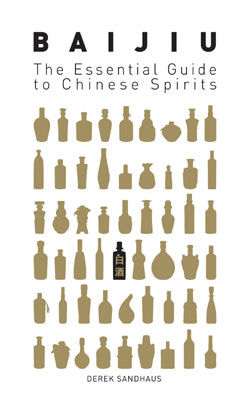 |
|
The Essential Guide to Chinese Spirits by Derek Sandhaus published by Viking (Penguin Group Australia)
|
He has since visited major baijiu regions around the country to study the spirit central to the Chinese way of life - white spirit production will reach 17.05 billion liters in 2016 according to Frost & Sullivan, a US-based market consultancy. Enough baijiu to fill the West Lake in Hangzhou, Zhejiang province.
"Anyone who lives in China for a long time knows baijiu is really important to China," Sandhaus says. "It's central to how Chinese celebrate holidays, central to the way people do business. It's really important in building and maintaining relationships in China."
During his journey that spanned the larger part of the country, from the northernmost Heilongjiang province to the Guangxi Zhuang autonomous region in the south, Sandhaus has come to see baijiu's deep-rooted cultural role.
"The best friends I made in China were people whom I went out drinking with," he says. "People really open up when they drink baijiu."
"It's not about getting drunk, it is about respect. It shows you value the other's relationship," he says. "I think alcohol is one of the most important parts of Chinese culture that people from other countries don't understand."
That respect also manifests itself in the various toasting rituals he experienced. In Henan province, for example, the toaster will not drink the toast but makes sure everyone else's cup is empty.
"Baijiu is made of grain. Food was precious back in the old times, and offering the best spirits to a guest definitely shows respect," says Guo Wulin, vice-president of the Chinese Liquor Culture Institute in Yibin, Sichuan province.
Guo agrees that baijiu is an essential part of Chinese culture and that an introduction from the Western perspective is needed.
"We say baijiu is the national drink because it's the presiding tradition for us," Guo says. "It has been inseparable with our thoughts and behavior for thousands of years."
He explains that baijiu is in line with the Taoist philosophy of being inclusive and complex in tastes and flavors, and it is best described "half-water-half-fire".
"It's too mysterious and far-fetched. That's why we need others' perspective in explaining baijiu," Guo says.
We Recommend:
